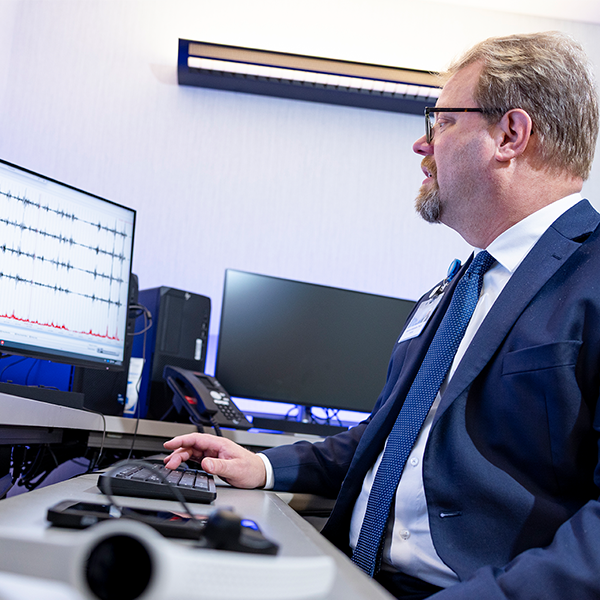-
New AI algorithm opens avenues for knowledge discoveries

In a proof-of-concept study published in Frontiers in Immunology, Hu Li, Ph.D., a Mayo Clinic Center for Individualized Medicine systems biologist, developed a new artificial intelligence (AI) algorithm which uses novel weight engineering methods to extract meaningful biological knowledge learned by AI models. He and his team applied the tool to breast cancer omic data to uncover the immune-related activities behind the clinical outcomes.
"Artificial Intelligence (AI) usually works as a black box," says lead author Dr. Li. "We have no idea what 'knowledge' has been learned despite AI's amazing performance in tasks, such as sample classification of disease diagnosis."
Dr. Li explains that knowledge discovery pertains to uncovering what has been learned by an AI model, regardless of whether researchers understand how the models make predictions.

"One of the salient examples is our brain," says Dr. Li. "Although we still do not fully understand how our brains make decisions based on learned knowledge, we trust our brains for their learning capabilities."
Dr. Li explains that researchers understand how the brain learns by adjusting the connection strengths between neurons and storing a sparse representation. Learned 'knowledge' is encoded in the neuronal connection strengths or weights throughout the brain.
This idea inspired Dr. Li and his team to build the Artificial Neural Network Encoder. His team devised weight engineering, a mathematical transformation approach to extract knowledge learned by AI from big data. The research team used a breast cancer expression dataset with known clinical outcomes as their study case to explore what knowledge had been learned by the Artificial Neural Network Encoder.
They found reconstructed gene-gene links — biological knowledge — that researchers had previously reported in several other studies. Dr. Li clarifies that genes collaborate through functional links, and differentially expressed or mutated genes are not always the key players that determine outcomes. Gene-gene links are embedded within omics data. Omics are comprehensive approaches for analyzing genetic or molecular profiles. Researchers use omics to study how complex interactions between genes and molecules influence the disease symptoms in patients.
According to Dr. Li, these results confirmed that the model had the power to capture existing and new knowledge on immune-related processes that are the bedrock of the characteristics of breast cancer.
"Immune responses are known to play important roles in the causes of disease, often linked to the outcome and drug response in cancer," says Dr. Li, a member of Mayo Clinic Comprehensive Cancer Center. "Unlike conventional knowledge mining, which focuses on identifying important features, knowledge reconstructed from this new AI approach reveals how these features are associated and to a certain extent, provides deeper insights that may explain the properties of the disease."
Authors include corresponding author, Choong, Yong Ung, Ph.D.; first authors Cheng Zhang, Cristina Correia, Ph.D., co-authors Taylor M. Weiskittel, Shyang Hong Tan, Kevin Meng-Lin, Grace T. Yu, Jingwen Yao, Kok Siong Yeo, and Shizhen Zhu.
This work was supported by grants from National Institutes of Health (NIH) [R01AG056318, R01AG61796, R01CA240323, P50CA136393, P01CA229100]; the Glenn Foundation for Medical Research, Mayo Clinic DERIVE Office and Mayo Clinic Center for Biomedical Discovery, Mayo Clinic Center for Individualized Medicine, Mayo Clinic Comprehensive Cancer Center (P30CA015083), and the David F. and Margaret T. Grohne Cancer Immunology and Immunotherapy Program.
Learn more
Read more stories about advances in individualized medicine.
Register to get weekly updates from the Mayo Clinic Center for Individualized Medicine blog.
Join the conversation
For more information, visit Mayo Clinic Center for Individualized Medicine, or Twitter at @MayoClinicCIM.








